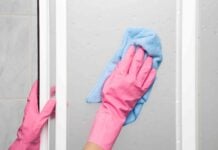As winter approaches, homeowners face a critical window to safeguard their properties against freezing temperatures. Delaying seasonal maintenance can lead to costly damage, from burst pipes to roof leaks. Experts emphasize that certain tasks are non-negotiable before the first freeze hits. Here’s a breakdown of what needs to be done, and why it matters:
Зміст
HVAC Inspection: The First Line of Defense
Your heating system is the core of winter comfort, but neglecting maintenance can lead to breakdowns at the worst possible time.
Lisa Purvins, CFO and VP of Pro-Tech Heating & Cooling, notes that a professional tune-up improves efficiency, reduces energy costs, and minimizes the risk of failure. A sudden shutdown in freezing conditions can lead to pipes freezing and bursting, causing significant water damage.
Insulate Pipes to Prevent Freezing
Water pipes are highly vulnerable to freezing temperatures, especially in unheated areas like garages or basements. Jonathan Chavis, Plumbing Program Director at Miller-Motte College, recommends using high-R-value insulation (R-6.5) on exposed pipes and adding heat trace tape to maintain above-freezing temperatures. While not foolproof if the entire system fails, proper insulation drastically reduces the risk of damage under normal conditions. Don’t forget a water heater blanket if it’s in a cold space.
Clear Gutters: Stop Ice Dams Before They Start
Clogged gutters trap water, which then freezes and forms ice dams. These dams can cause roof leaks, siding damage, and even structural issues if left unchecked. Purvins warns that heavy ice dams can tear gutters off the roof, exposing the fascia and siding to further damage. A simple cleaning now saves major repairs later.
Inspect the Roof: Prevent Structural Failures
The weight of snow and ice can stress roofs with loose shingles or weakened supports. Inspecting and repairing these issues before winter is critical. Proper attic insulation also helps regulate temperature and reduces ice formation. If you’re not comfortable doing this yourself, hire a roofing expert.
Winterize Exterior Plumbing: Avoid Burst Pipes
Garden hoses, outdoor faucets, and irrigation systems are all at risk of freezing and bursting. Disconnect hoses, drain them completely, and store them indoors. Turn off water to exterior faucets using interior valves and open them to drain remaining water. For irrigation systems, drain and blow out any residual water to prevent damage.
Clean Chimneys Before First Use: Eliminate Fire Hazards
Creosote buildup in chimneys is a fire hazard. Regular cleaning ensures proper ventilation and prevents dangerous chimney fires. Neglecting this maintenance can allow creosote to ignite unnoticed, spreading to the rest of your home.
The bottom line: Winterizing isn’t just a to-do list, it’s a financial and safety precaution. Ignoring these steps can lead to preventable damage that costs far more to fix than the upfront effort of preparation. Take action now to protect your home and avoid costly emergencies when temperatures drop.




























